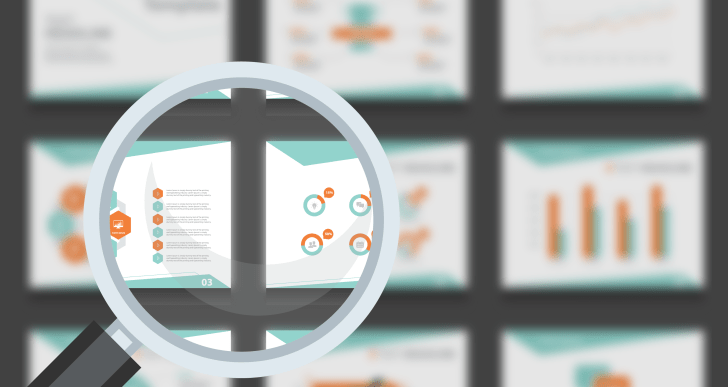Music
Trailers
DailyVideos
India
Pakistan
Afghanistan
Bangladesh
Srilanka
Nepal
Thailand
StockMarket
Business
Technology
Startup
Trending Videos
Coupons
Football
Search
Download App in Playstore
Download App
Best Collections
Technology

…And see other pitchdecks get the teardown treatment from top early-stage investors Charles Hudson (Precursor Ventures), Anu Duggal (Female Founders Fund) and Russ Heddleston (CEO of DocSend). All you have to do is send your deck over to This email address is being protected from spambots. You need JavaScript enabled to view it. if you&re attending Disrupt, and you can get feedback directly from them in a workshop setting.
If we use your deck, we&ll also provide you a free ticket to any TechCrunch event of your choosing next year.
This is part of a new project to make Disrupt even more focused on founders. We&re already offering the Extra Crunch stage, where you&ll get lots of time to ask questions yourselves in addition to hearing their interviews. For this additional project, we&re setting up workshops with experts on our Q-A stage where they&ll be going over the actual founder problems.
These folks have seen everything, so they will have a gut sense for how generalized advice can be applied to your specific team and market — the nuance that can compellingly explain your strengths and weaknesses. Hudson and Duggal have written some of the first checks for some of the most interesting startups today. The Athletic, Clearbanc, Incredible Health, Sudo and Pico are names you may recognize from the Precursor portfolio; Tala, BentoBox, Thrive Global and WayUp are a few of the many on Female Founder Fundlist.
Heddleston, meanwhile, is a repeat founder who now has some of the best insight into trends in funding through his current company, DocSend . As you may have read on TechCrunch already, the company provides document management for a large portion of startup founders out there, allowing them to share anonymized data with DocSend about how investors are reading their pitch decks. He&ll provide a data-driven founder perspective.
Attendees will be notified via email on how to submit their pitch deck. If you want to participate in this workshop and submit your deck for review, get your pass to the event here.
Please note: The workshop is open to all conference attendees and is officially on the record. Other investors and members of the media may be in the workshop and see what you have in your deck, so plan accordingly.
- Details
- Category: Technology
Read more: Get your pitchdeck analyzed by top investors and experts at Disrupt SF next week
Write comment (93 Comments)Some weeks, tech ethics is in the news. And some weeks, it IS the news. This week was one of the latter.
There were so many ethically fraught news stories about technology companies over these past few days, I had trouble keeping track of them all. So I&m delighted that my latest interviewee for this series on ethics and technology is TechCrunchown Kate Clark, a reporter covering startups and venture capital.
Kate is one of the tech reporters on whom I rely most heavily for insight into what the hell is going on in Silicon Valley, and not just because sheprolific, a fine writer, and so hardworking she seems to attend every VC dinner and startup product launch in Northern California (though she is all of those things).
I also turn to her (well actually, I turn to her Twitter — we&ve never met in person) because, though she would never claim to have any special training or authority in ethics, she has three of the top qualities I look for in an ethical leader: a passion for equitable inclusion; a well-modulated bullshit detector; and enough compassion for humanity to expect better of us all.
When Kate and I spoke on Wednesday afternoon, she was as harried as you might expect, at least based on her tweets.

Image via Twitter / Kate Clark / @KateClarkTweets
Alright anyone else that tries to generate headlines today is selfish and rude and must be stopped!!!
— Kate Clark (@KateClarkTweets) September 25, 2019
Greg Epstein: I&ve been looking forward to talking to you for a while now, and I certainly picked a busy day.
Kate Clark: Not as bad as yesterday.
Epstein: I follow your work closely; it informs mine. I&m sitting here in Cambridge, Massachusetts, where I work, and I&m thinking about the ethics of technology.
- Details
- Category: Technology

Earlier this month, HTC co-founder Cher Wang stepped down from her role as CEO. In her place, former Orange EVP Yves Maitre has taken up the reins for the Taipei-based smartphone maker.
One of Maitrefirst acts as the head of HTC will be to join us at Disrupt in October. The interview — and his new role — comes at a tenuous time for HTC. The company has been harder hit than most by several years of stagnant smartphone sales.
In spite of a $1.1 billion deal in 2017 that gave Google access to most of the Taiwanese companyR-D resources, the following year still saw massive layoffs. All the while, it has looked to emerging technologies like VR and blockchain as a potential way forward in an oversaturated market. In his first public interview, Maitre will discuss how HTC got here and what the company can and will do to help turn the ship around.
Maitre joins an incredible speaker lineup, which includes Steph Curry, Rachel Haurwitz from Caribou Bioscience, Joseph Gordon-Levitt and ZooxAicha Evans. Still need tickets? You can pick those up right here.
- Details
- Category: Technology
Read more: HTC’s new CEO Yves Maitre is coming to Disrupt San Francisco
Write comment (92 Comments)Hereone way to play catch-up in the competitive streaming music market: preinstall your app on millions of Android handsets. Thatwhat Google will now be doing with YouTube Music. The company announced today the app will come preinstalled on all new devices launching with Android 10, as well as Android 9, including its own Pixel series of smartphones.
The move comes at a time when the companymusic strategy is in need of change.
Since the launch of YouTube Music in November 2015, Google has operated two separate music services — the other being Google Play Music, launched in 2011. To add to the confusion, YouTube also offered a subscription tier, originally called YouTube Red and rebranded later to YouTube Premium, which would provide access to both Google Play Music and YouTube Music. Plus, Google Playsubscribers would also receive access to YouTube Premium. Oh, and as of last May, Google also allowed you to buy YouTube Music separately, if you&d prefer.
Did you follow all that?
Okay, sure, this wasn&t as bad as Googlebizarre messaging app strategy, but it was still a mess.
This April, Google finally confirmed that it would replace Google Play Music with YouTube Music, explaining that the closure of Google PlayArtist Hub was a part of a broader strategy to merge the two music services.
But despite todaynews that YouTube Music is being added to the list of preinstalled apps that ship with Android, and is now the new default, the Google Play Music shutdown has not yet occurred.
Instead, the company says that Google Play Music listeners with Android 10 devices can continue to use the service by downloading the app directly from the Play Store, if desired.
And those without a new Android (9 or 10) handset can continue to seek out YouTube Music from the Play Store, if they choose.
YouTubestreaming music service is fairly competitive (in terms of feature set) with its larger rivals, like Apple Music and Spotify. Like most in the space, it also offers the ability to discover and stream music, but in its case, this includes albums, live performances and remixes. With a paid subscription, YouTube Music users can listen ad-free and offline. It also just introduced its own version of SpotifyDiscover Weekly with the launch of its own Discover Mix.
But because YouTube Music has had to compete with Androidbuilt-in music app for subscribers, itbeen lagging in subscribers, compared with Spotify and Apple. This is made worse by the fact that therenot been a way to import a Google Play Music userplaylists and liked songs, curated over years, to YouTube Music.
YouTube Music, in May, had some 15 million subscribers. For comparisonsake, Spotify said it had 232 million monthly active users and 108 million paying subscribers at the end of June, and Apple Music in June surpassed 60 million subscribers.
The plan to replace Google Play Music is still in the works, Google says. It just hasn&t happened yet.
&As we&ve previously announced, eventually we plan to replace Google Play Music with YouTube Music. As part of the transition, YouTube Music will replace Google Play Music and come preinstalled on new Android Q devices,& a YouTube spokesperson confirmed.
- Details
- Category: Technology
Read more: YouTube Music will be preinstalled on Android 10 and new Android 9 devices
Write comment (97 Comments)
This is, surely, the moment some loyal fans have waited for. And understandably so. The Galaxy Fold is, by all measures, an exciting phone. Itthe sort of bold brashness that has helped Samsung set itself apart from the competition. Many of us laughed at the Galaxy Note, too, and yet here we are, with larger phones across the board.
Five months after originally planned, the Galaxy Fold goes on sale today in the U.S. The handset has had its share of setbacks, of course. The first round ran into problems from several reviewers for a variety of reasons. And as I outlined yesterday, I ran into my own issues with the reinforced version of the handset.
Even in its current version, the Galaxy Fold is a fragile thing. Thatsomething Samsung has been abundantly cautious about disclosing, through a video pleading to &just use a light touch& and a lot of paperwork that ships with the device. I&ll be giving more thoughts on my time with the product in an upcoming write-up. In the meantime, however, anyone thinking of plunking down the $2,000 (and up) needs to factor that into the equation.
But this is a phone, not a Fabergé egg. It will be interesting to see how wider availability plays out. There is still a sense around the launch that we&re dealing with a sort of wider-scale beta phase here. It would be silly to suggest that the foldable category will live or die by this launch, but it will surely be the most closely watched device release in recent memory.
Also out today is the Galaxy Watch Active 2. I&ve been wearing that device around as well. More on that soon, but so far, so good.
- Details
- Category: Technology
Read more: The Galaxy Fold is now available for purchase in the US
Write comment (91 Comments)In a move to correct the imbalance of power between technologically sophisticated corporations and the lawmakers who regulate them, presidential candidate Senator Elizabeth Warren is proposing that Congress reinstate the Office of Technology Assessment.
Ita move that gets deep into the weeds of how policy making in Washington works, but itsomething that Warren sees as essential to leveling the playing field between well-paid corporate lobbyists who are experts in their fields and over-worked, under-staffed congressional members who lack independent analysts to explain highly technical issues.
&Lobbyists are filling in the gaps in congressional resources and expertise by providing Congress information from the perspective of their paying corporate clients. So letfix it,& writes Warren.
Itone of the key planks in Warrenlatest policy proposal and an attempt to tip the scales against corporations and their lobbyists. With the move, Warren clearly has her eye on technology companies and their representatives, who often are the very people congressional lawmakers rely on to explain how rule-making would impact their industries.
&[Members] of Congress aren&t just dependent on corporate lobbyist propaganda because they&re bought and paid for. Italso because of a successful, decades-long campaign to starve Congress of the resources and expertise needed to independently evaluate complex public policy questions,& Warren writes.
&For every bad faith actor in Congress bought off by the big banks, there are others who are genuinely trying to grapple with the technical aspects of financial reform. But as the issues facing Congress have grown more complex, resources to objectively and independently analyze them have been slashed. Republicans eliminated an independent office of experts dedicated to advising Congress on technical and scientific information,& the Senator says.
The lack of independent analysis stymies congressional oversight in areas from banking and finance reform, to the oversight of technology companies, to the potential to effectively pass laws that will respond to the threat of climate change. Committees that oversee science and technology have seen their staff levels fall by more than 40% in the past decade, according to Warren, and staff salaries have failed to keep up with inflation, meaning that policymakers in Washington can&t compete for the same level of talent that private companies and lobbyists can afford several times over.
Sen. Warren saw this firsthand when she worked at the Consumer Financial Protection Bureau .
&Financial reform was complicated, and the bank lobbyists used a clever technique: They bombarded the members of Congress with complex arguments filled with obscure terms. Whenever a congressman pushed back on an idea, the lobbyists would explain that although the congressman seemed to be making a good point, he didn&t really understand the complex financial system,& she writes. &And keep in mind, the lobbyists would tell the congressman, that if you get this wrong, you will bring down the global economy.&
The inability of lawmakers to understand basic facts about the technologies they&re tasked with regulating was on full display during the Senate hearings into the role technology companies played in the Russian interference in the 2016 election.
Issues from net neutrality to end-to-end encryption, or online advertising to the reduction of carbon emissions, all rely on Congress having a sound understanding of those issues and how regulation may change an industry.
Right now, ita case of which multibillion-dollar company can buy the best lobbyists — as is the case with Alphabet and Yelp or Facebook and Snap.
Under the auspices of Warrenanti-corruption plan, the senator is calling for the reinstatement and modernization of the Congressional Office of Technology Assessment, a significant increase to salaries for congressional staffers and stronger funding for agencies that support congressional lawmaking.
The OTA was created in the seventies to help members of Congress understand science and technology issues that they&d be regulating. Over the tenure of the agency, it created more than 750 reports — including two landmark studies on the impacts of greenhouse gas emissions and global warming in the 1990s, which brought it to the attention of conservative lawmakers, who defunded it in 1995.
At the time, House Speaker Newt Gingrich, said the agency was &used by liberals to cover up political ideology.&
Under Warrenplan, the OTA would be led by an independent director to avoid partisan manipulation. The newly re-formed agency would have the power to commission its own reports and respond to requests from lawmakers to weigh in on rule-making, help congressional legislators prepare for hearings and write regulatory letters.
Warren also calls for funding to be increased for the other congressional support agencies — the Congressional Research Service, the Congressional Budget Office and the Government Accountability Office. Combined, these agencies have lost half of their staff.
Money for the increased activities of the agencies would come from a tax on &excessive lobbying.& The goal would be &to reverse these cuts and further strengthen support agencies that members of Congress rely on for independent information,& according to the Warren plan.
&These reforms are vital parts of my plan to free our government from the grip of lobbyists & and restore the publictrust in its government in the process,& Warren writes.
- Details
- Category: Technology
Page 771 of 5614

 11
11





